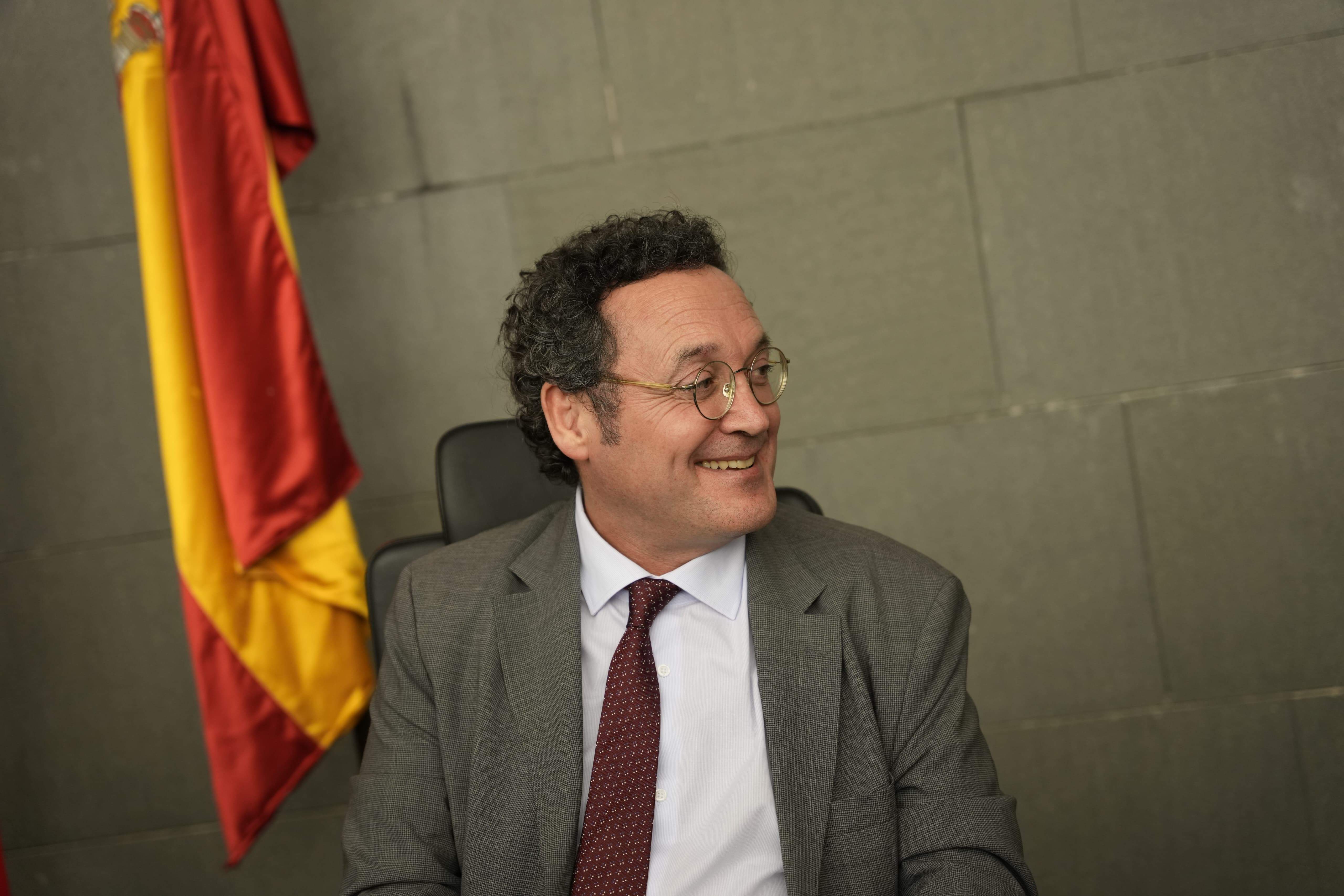New movements in the office of Spain's prosecutor general that give clues as to the possible outcome of the smouldering conflict between Álvaro García Ortiz and the prosecutors of the Supreme Court. The chief prosecutor has taken the first step and prepared the ground to confront the prosecutors of the 2019 pro-independence leaders trial: he has asked senior prosecutors to, "in anticipation of the activation of statutory mechanisms", reserve time next Tuesday, June 18th, for the "possible celebration" of a meeting of the Board of Prosecutors. This will come to fruition if, as is predictable, García Ortiz opposes the criteria of the four Supreme Court prosecutors and comes out in favour of applying the amnesty to the misuse of public funds offences attributed to Carles Puigdemont, Oriol Junqueras and the rest of the former ministers over the referendum of 1st October, 2017. Prosecution sources indicate that today's decision does not yet involve the official calling of the meeting. For this to occur, the prosecutor general will have to give the order, with a thesis contrary to that of the four prosecutors in the independence process case, and they will have to reiterate their refusal and invoke Article 27 of the Statute of the Public Prosecution Service.
What does all this mean? Context: we are still waiting for Spain's highest-ranked prosecutor to draw up a legal report in which he will officially reveal his position on whether or not the misuse of funds by Puigdemont, Junqueras and the other former ministers can be amnestied. Everything indicates that his argument will be in favour of amnestying these offences and, therefore, contrary to the thesis of the Supreme Court prosecutors. And at that point, the collision will take place: García Ortiz will order them to pronounce in the same direction as he determines and the 2019 trial prosecutors, opposing him, will turn to Article 27: thus, the Board of Prosecutors will debate the two reports and García Ortiz, after listening to all the positions, will give the final and binding opinion. His position "may or may not coincide with the majority opinion", as prosecution sources have informed ElNacional.cat, since the prosecutor general always has the last word.
The Board of Prosecutors is presided over by the prosecutor general of the state and is composed of the deputy prosecutor of the Supreme Court, María de los Ángeles Sánchez Conde, and all of Spain's senior "chamber prosecutors". The chief prosecutor of the technical secretariat, Ana García León, acts as secretary. In total, there are 38 prosecutors. The meeting is expected to be long, since all the attendees, starting with the last to be appointed and ending with their longest-serving colleague, will have to present their legal arguments, as prosecution sources have told this newspaper.
Supreme Court prosecutors reiterate their opposition
Just yesterday, the four prosecutors who conducted the case against the independence process leaders in the Supreme Court trial ratified their total refusal to apply the amnesty law to the crime of misappropriation of public funds. In a strongly-worded statement, their argument was clear: "It is beyond doubt that the prosecuted Puigdemont, Comín and Puig (in their capacity as president and ministers of the Catalan government) and the already-convicted Junqueras, Turull, Romeva and Bassa, as receivers of the expenses, stole public funds themselves, in the form of millions of euros", which "implies personal enrichment, since they were able to dispose of public funds for their illicit purposes". The prosecutors assert that the pro-independence leaders' objective was "to carry out an unconstitutional project for the disintegration of Spain and the proclamation of independence in violation of the decisions of the Constitiutional Court and the Catalan High Court." "These funds have not been returned," they conclude.
In their justification, they argue that "the misappropriation of public funds resulted in a patrimonial benefit for the authors", since they allocated the funds to "the preparation, development and realization of their illegal project, which produced an undoubted patrimonial benefit". "Having decided to hold the illegal referendum at all costs, they knew perfectly well the magnitude of the expenses and the need to obtain them by resorting to a blatant violation of the duty of custody, thus stealing them from the public treasury of all Spaniards", they argued. "With the intention of profit, they appropriated public funds and, outside of their public and legal function, assuming powers of ownership, they allocated them to the payment of those [ends] that they themselves had contracted in illicit public contracts to carry out the activities that made up the [independence] process in its entirety", they added.
The four prosecutors ask their superior to put it “in writing”
In addition, the four Supreme Court prosecutors directly requested to Álvaro García Ortiz that, if he does not agree with their thesis and considers that the amnesty should be applied in all cases, "he will have to order it in writing in a motivated and well-founded manner" and will have to convene a meeting of the Board of Prosecutors. This is precisely the pathway that the prosecutor general has opened up today. If he ultimately upholds the decision on the application of the law to misuse of funds offences, "it will be necessary for him to issue an argued decree agreeing to the case being presented by the prosecutor general or whoever he designates for this purpose". The implication: that, in that situation, the four prosecutors would renounce playing that role themselves.

